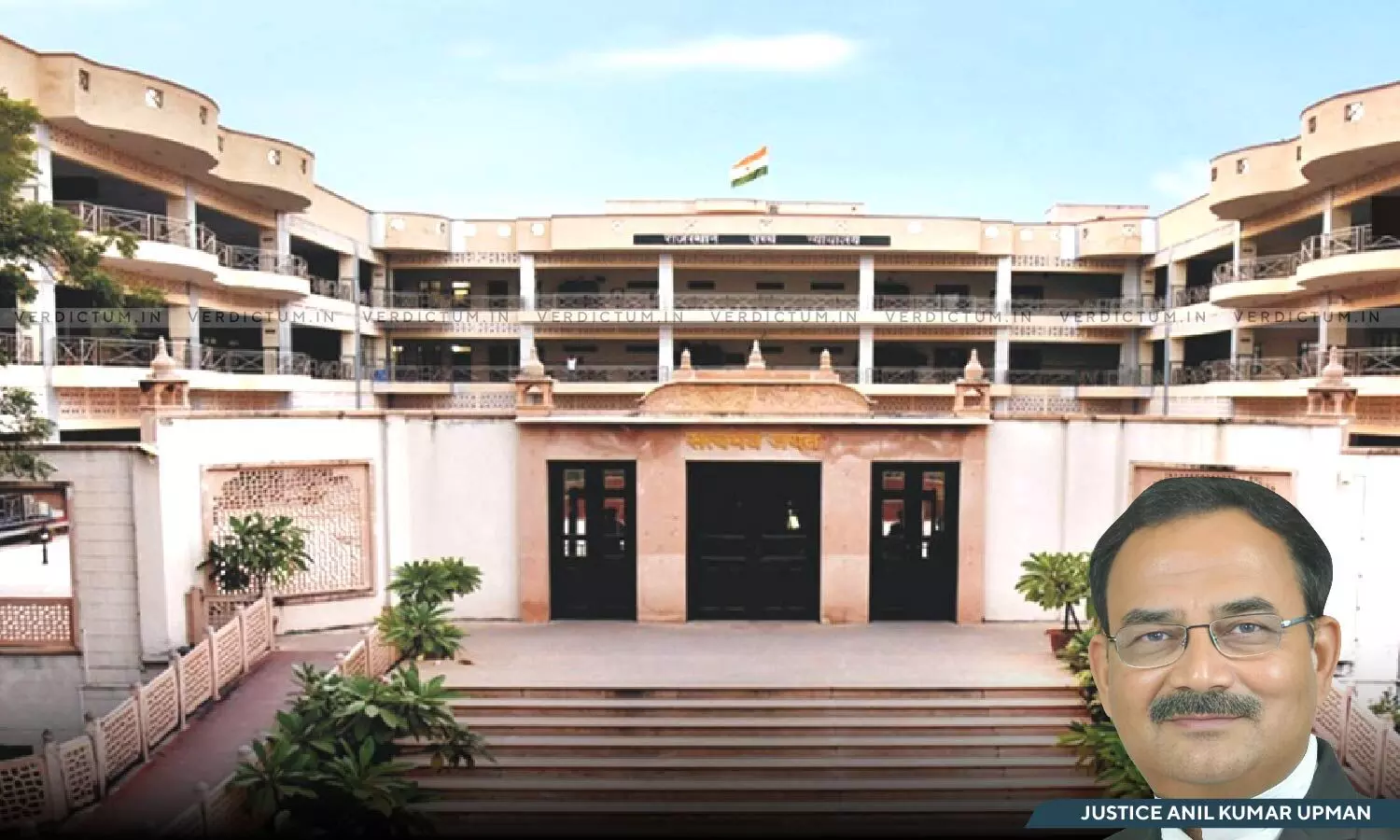
Advocate Should Not Blindly Follow Unethical & Illegal Instructions Of Client; Must Act In Best Interests Of Justice: Rajasthan HC
 |
|The Rajasthan High Court observed that an an advocate should not blindly follow the instructions of clients if they are unethical, illegal, or contrary to the principles of justice.
Advocates have a duty to act in the best interests of justice and uphold the ethical standards set by the legal profession, the court said.
In that context, the Bench of Justice Anil Kumar Upman observed that, "As a lawyer serving the Indian judiciary, it is crucial to prioritize the interests of justice and uphold the principles of professional ethics. This means that an advocate should not blindly follow the instructions of clients if they are unethical, illegal, or contrary to the principles of justice. Advocates have a duty to act in the best interests of their clients, but this duty is subject to certain limitations. The Advocates Act, 1961, and the Bar Council of India Rules lay down the ethical guidelines that advocates must adhere to. These guidelines emphasize the importance of maintaining professional integrity, promoting justice, and upholding the rule of law. If a client's instructions are in violation of these ethical guidelines or if they involve engaging in dishonest or unethical practices, it is the duty of the advocate to advise the client against such actions. Advocates are expected to provide honest and unbiased advice to their clients, even if it may not align with the client's desired outcome. Furthermore, an advocate's duty is not only towards their clients but also towards the court and the administration of justice. Advocates are officers of the court and have a responsibility to assist the court in reaching a just decision. This duty requires them to present the facts and arguments honestly and to refrain from misleading the court."
The complainant-respondent No.2 lodged a complaint under Section 156(3) of the CrPC with the Metropolitan Magistrate, Jaipur. He accused the petitioner of inducing him to deliver material against advanced payment through proforma invoices. Allegedly, despite paying the advance amount, the petitioner neither supplied the material nor refunded the advance. The complaint further accused the petitioner of fraudulent entries in the books of accounts and misappropriating money.
The trial court referred the matter to the police for investigation, resulting in the registration of an FIR against the accused-petitioner for offences under Sections 409, 420, 468, 471, and 120B of the IPC.
The Court observed that, "Even if all the averments contained in the FIR are taken to be true, they do not make out any of the offences alleged against the petitioner. Therefore, I am unable to understand how an FIR was registered and offences have been found proved. When FIR itself disclosed nothing more than a commercial relationship which broke, it is not possible for respondent No.2 to enlarge the scope of his complaint by merely adding the language used in the text of the Indian Penal Code."
Subsequently, the Court deemed that the impugned FIR must be quashed.
Cause Title: Simara Foods Pvt. Ltd vs State of Rajasthan & Anr.
Click here to read/download the Judgment